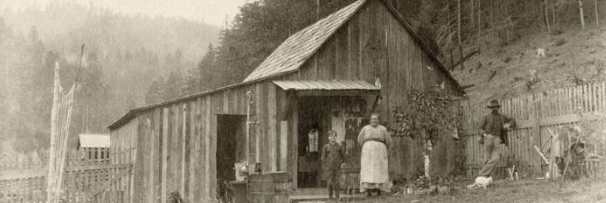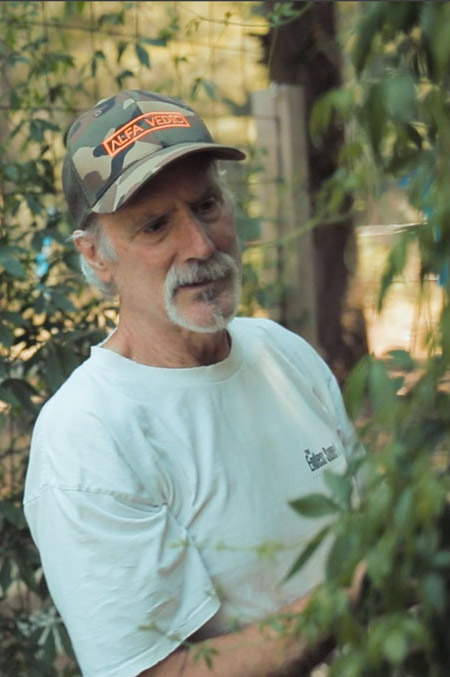
Homesteading
Public Group
Public Group
Active 2 months ago
A group dedicated to any and all aspects of homesteading and the homestead life.. Feel free to... View more
Public Group
Dairy Cows
-
CreatorDiscussion
-
May 4, 2024 at 1:36 pm #389769

KevParticipantA discussion for dairy cows and raw dairy..
-
CreatorDiscussion
-
AuthorReplies
-
May 5, 2024 at 10:58 am #389838

KellyMemberHere’s some milk cow spam from the farm!
Both of the cows in milk are first calf heifers. Jelly, the Jersey (beige color) calved about a month ago, has really taken to being milked and gives a half a gallon once a day, which is pretty normal for a first lactation without a lot of grain supplementation (she gets about a pound of grain after milking) and is otherwise on quality grass hay and pasture.
-
May 5, 2024 at 5:37 pm #389867

ElizaMemberNothing you share about these beauties will ever be spam, Kelly!!! I want to know every detail and learn as much as I can! Ya’ll are amazing!!!!!!!!! ? I can’t find the “milk share” website or a farm offering near me and I’ve been basically just googling and emailing to find a farm that will let me invest in a cow in exchange for learning about them, paying for upkeep and drinking the raw milk…apparently that’s a thing in some places but perhaps big milk industry is hiding the google results and big pharma/cdc doesn’t want people to find a work around for raw milk…
I’d begged Jed to consider a miniature cow but it’s the whole knocking her up part that seems weird. (Well that and I’m wholly unqualified so it would be irresponsible at this point to have a cow…but whatever. details…;))
Apparently some of the miniatures are actually also like..drafting animals…so I tried to convince him using that angle as well…I’m the one who literally has to have milk at all times in the house in order to survive.
Their milk must taste like pure heaven, Kelly!?
-
May 6, 2024 at 7:10 am #389906

KellyMemberThanks Eliza! Having milk cows is super neat but it can be all consuming too lol, most of my friends really want one too and those are the ones I’m trading with in hopes they will come try it before they buy it – we are a bunch of wild homestead women who all want to be individually independent, sometimes to our own detriment when it comes to our time and commitments ? I decided to continue on since I’d already been over the learning curve a few years ago and for whatever reason these sweet cows just keep finding their way to me ? I’ve considered doing some kind of lease option so they could keep them for a few months before fully committing.
Yes, the whole breeding issue is a limiting factor. Our first cow was bred by a bull before we bought her and I kept her in milk for 2 years without being bred back, as a breastfeeding mama myself, I reasoned that it was easier to keep nursing than grow another baby ? She started to lose a bit more weight than is desirable toward the end of that, so we dried her up (quit milking), dewormed her with tobacco and gave her a few months to recover and recondition and she bred back in January when we borrowed a friends bull. We really lucked out with that and are in the midst of figuring out what to do this season as the friend is in the process of moving and sold the bull. I’ve really been considering buying a miniature bull (Dexter most likely), as he would cost less to keep in feed, is a bit more manageable size and would contribute a smaller frame to the calves so the replacement heifers would be smaller (less feed), we shall see. Bulls are a lot but there are good ones and finding one that has been handled well is the most important thing so that they are pleasant to work around. I’ve been thinking about setting up some kind of bull share in the area too – he could just move around the community breeding homestead cows.. I’ll keep ya posted on what develops.
Realmilk.com, a Weston A Price affiliate website has some listings for local raw milk sources on a map, in case you haven’t found them…
-
May 8, 2024 at 5:21 pm #390129

KevOrganizerHmmm, I have a lot to learn about the lactation cycles and seasons of a cow.. Obviously, they’ll lactate more after birth.. and then you said there that you intentionally dried her up.. Is that a situation where you just quit milking after there’s a period of time away from birthing, so the flow of milk is easy to stop at that point??.. I was given to understand that Jerseys can go a week without needing to be milked — I assumed that was in “normal” times not near to birthing.. so if you just quit milking altogether, they’ll dry up over time??
-
May 10, 2024 at 7:01 am #390219

KellyMemberKev, great questions! Thanks for your interest, it is such a neat topic (to me anyway)!
A cows milk production peaks (for that individual lactation) around 3 months post calving but it generally doesn’t taper unless there is not enough nutrition or the demand is not there. They will continue to produce indefinitely per the demand placed upon them, just like a breastfeeding woman.
In order to dry them up, you reduce demand and they naturally taper off. In our herd, that is when we wean the calf and then hand milk twice a day to see what she is producing and each week, take gradually less (say she’s at a gallon, twice a day, we would take 3/4 of a gallon twice a day for a week, then go to 1/2 a gallon twice a day for a week, then I usually feel safe to switch to 1 gallon once a day, and taper that over another week or two down to a half gallon once a day, and then, in my experience, you just stop milking and she will completely dry off on her own). The industry has chemicals that they inject up the teat to make the process happen over night but I’m not privy to that as it doesn’t interest me lol. I’m sure that there are herbs and essential oils that could be utilized to aid/ speed the process, if one was so inclined.
The amount of time that you can go in between milking is dependent on the cows production and whether or not you are calf sharing and the calf’s consumption. My older cow (first cow) makes 4 gallons a day minimum from the day she calves forward so she has to be milked everyday for at least the first month because even while calf sharing, the calf isn’t consuming enough to make any difference and her production would likely tank from the demand side of things, she would be very uncomfortable, plus there is a programmed in fear (normie world) that when the milk stagnates at such a large volume it can cause mastitis (my guess as to the real explanation of this is that a conflict would be created because of the separation/loss conflict bc of absence of calf/milking – normal dairy people just think it is because of bacterial contamination that ‘creeps in’ to the teat ??♀️ but they also believe success at ‘combatting’ mastitis is accomplished by removing all the milk – which isn’t actually possible). Its general practice to milk everyday so that there is flow/circulation of milk happening, once a day is fine but the cow will be tight bagged and most likely uncomfortable when it’s time to milk if she is a big producer. I do tend to think a routine is necessary from a comfort standpoint as they have been genetically selected over time to make so much more milk than their calf can drink.
Once a calf can keep up with the milk, or more calves (generally orphans) are ‘given’ to the cow to nurse the extra milk, all dependent on the cow (also, the first lactation is the smallest volume with a general ‘peak’ at third lactation and then a plateau at that level), a cow can be milked at the dairyman’s leisure but the calves will need to be separated so that enough milk can build up to make it in to the bucket.
Hope this sheds some more light on the day to day of keeping a homestead milk cow. ?
-
This reply was modified 1 year, 1 month ago by
 Kelly.
Kelly.
-
May 10, 2024 at 1:26 pm #390250

KevOrganizerOh wow, that’s all of it!.. Lol.. Thanks for taking the time to elucidate, and obviously this is such a love for you.. and clearly very experienced in how it all plays out, and knowing the different variables..
As I was reading this I was questioning why a cow would produce more milk than a calf would need.. doesn’t seem like nature would work that way.. and then you answered it — it’s due to breeding, obviously, to produce for human consumption.. (oh yeah, obviously.. Lol).. So that has to be accounted — the health and well-being of the cow kept an eye on.. To the inexperienced looking in, this looks like “a lot of work”.. ?
I’ve thought from the beginning that any group homestead I end up on would benefit from this kind of experience in at least one individual, if dairy cows were going to be part of the reality.. Otherwise, would be such a steep learning curve.. which could be done.. but an experienced guide/teacher so much better!.. ??
-
This reply was modified 1 year, 1 month ago by
-
-
-
-
-
May 5, 2024 at 11:06 am #389841

KellyMemberSpam continued ?
This is Bessy. She is primarily Holstein, which is a breed that has selected more for quantity of production and is the stereotypical milk cow coloring. She calved 2 weeks ago and is giving 1 gallon a day with once a day milking as well.
We ‘calf-share’, which means we don’t pull the babies off of their mamas at birth like many do, we leave them together full time for usually 2 weeks, until the calves are ‘keeping up’ with the milk and not letting us have enough at milking. Once this happens, we turn the cows out to graze in the morning, for the day, and keep the calves in a pen where they hang out all day. I usually halter Bessy in the pasture and lead her to the stanchion to milk and let Jelly in with the calves and she nurses them both. Then they all spend the night together in the pen until the calves are a little older and I’m confident that they will stay within the Hotwire fence at night so as not to wander off and upset their mamas.
-
May 8, 2024 at 5:26 pm #390131

KevOrganizerWhenever I hear the word Holstein, I think of home.. I grew up near a small town out in the backwoods called Holstein — think population of 64 people and lots of hog farms.. Lol..
And wow, I just love this relationship you have with the cows.. Obviously many years in the making.. And it does sound like a full-time job!.. So much to learn I have.. And it also seems that a small team of people would make it all much easier too..
-
-
AuthorReplies
Log in to reply.





